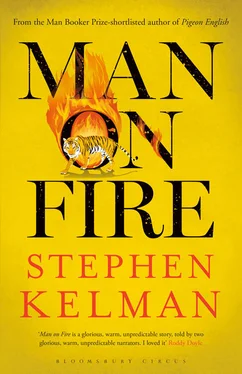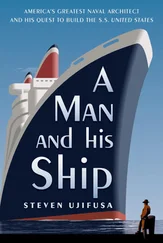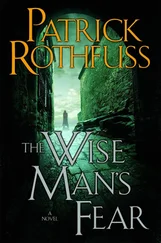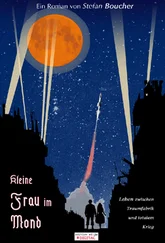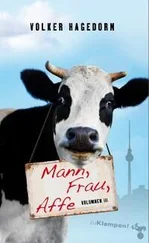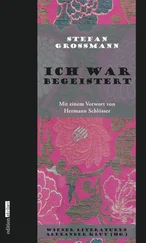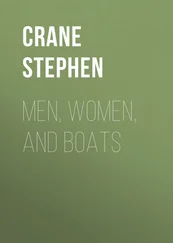He takes my money for safekeeping, locks the door on me and sits down at the desk that faces the cell on the far side of the room. He picks up a newspaper and starts reading. His lips move with the words. He wants to show me how unimportant I am.
I share my cell with a broken-down kid in a T-shirt that says ‘Welcome to Fabulous Las Vegas’. He’s coming down from something transformational and the tragedy of his return to earth is scratched into his face like a prayer gone cold. His eyes are empty and restless. He knows how close I came to killing a man. He can feel it coming off me and it’s making him edgy.
I tell the Inspector I have to be somewhere.
‘Where?’
‘I have to go home. I’m dying. I haven’t got much time left. You know I’m innocent. Let us go, we just want to go home.’
The Inspector mumbles something profane to himself and turns the page of his newspaper.
‘You are dying?’ my cellmate asks me.
‘That’s right.’
On hearing this he sways towards me, drawn in. I can smell the fight on his clothes. I know somehow that every day for him is a fight he can’t win. His breath is hot and sweet and I need a drink.
‘I also am dying,’ he says. He looks very young when he says this. There’s confederacy in his tone and it sickens me a little bit.
He puts his arms together as though he’s handcuffed. The inner sides of his forearms are bitten and ravaged. He feels no disgrace in telling me he’s a user of heroin. He says it’s killing him but he can’t stop.
I reach out to touch his shoulder but then I quickly pull back in case he doesn’t want the intrusion. I’m not sure why but it’s important to me that he thinks I’m a good man, sensitive to the needs of others.
I tell him God hasn’t forgotten him. I surprise myself by believing it. But then I shouldn’t be surprised, not after everything that’s happened. I believe in you informally, like a recipe handed down. You’re my bread now.
I’ve never been this hungry in all my life.
Then it’s time to pay the fine for my release. Official reparation against the disturbance I’ve caused to the flooded city’s peace. The Inspector digs in my bag and pulls out a fistful of notes. There aren’t so many left and their denominations are generally high. He chooses a pleasing amount for himself and stacks his selection on the desk. He gets a logbook from a drawer and fills out a docket. I knew the shakedown was coming and I don’t begrudge it.
‘Just leave me enough to get home,’ I say.
‘I don’t decide these things,’ he replies. ‘It is a fixed penalty.’ He says this with sincerity. I pity him for having been sucked in to such a corrupting profession.
Ellen is brought to me dazed and dehydrated. I demand water for her. She takes her medication under the Inspector’s impatient gaze, her senseless fingers struggling to open the pillbox with the tiny Klimt reproduction that I bought her for travelling. I never cared for art but she liked the colours.
The kid is curled up on the floor of the cell, slick with sweat and sleeping soundly. He twitches and whimpers, a dreaming dog.
I nearly drop Bibhuti in lifting him out of the wheelchair. My weakness comes as a shock and I can only watch as Vijay Five rights him and sets him down on the mud, his feet on our feet like a child dancing with his mother. We crabwalk him to the car, the doctor’s complaints drowned out by the rain.
The Turbanator has brought Bibhuti’s car round the back and it’s his idea to bury Bibhuti under a blanket to throw the rubberneckers off our scent. He sits upright in the back seat, dust-covered and inert, our smuggled artefact. Jolly Boy rests his arm across his father’s middle ready to pull the shroud aside as soon as they’ve cleared the hospital grounds.
‘I feel foolish,’ comes Bibhuti’s muffled voice.
‘No more foolish than you look,’ his wife replies, smoothing herself into the seat alongside them. ‘This is what happens when you break a baseball bat on yourself, I could have told you this.’
‘Eleven,’ Bibhuti says, but there’s no defiance in the correction. It’s a murmur that describes the mood of us all as we prepare to take our first steps into the world after the levelling storm. A simpler world, it will be, where the gaudy ambitions of men hang unworn on pegs and nobody looks you in the eye.
I’m ushered to Vijay Five’s car. It’s inappropriate for me to travel with the family. Ellen joins me in solidarity. We share the back seat, Ellen laying her stick down at my feet. The car smells like a single man who’s yet to meet his match. When I catch Vijay Five’s eye in the rearview mirror the loneliness I see provokes a twinge of pity. I press my hand down on Ellen’s knee. I know how lucky I am to be one half of something bigger.
We ease past the fraying protest and out onto the road. When we’re safely past the demonstration site the Turbanator floors Bibhuti’s car and Vijay Five speeds up to keep him in sight. A lone boy runs behind us, his bits and pieces clanging joyfully against his thighs. He reaches out a hand to us. In his palm is a bright yellow ball of fur. His supply of chicks has been refreshed and his smile tells us the prosperous times are coming back. We leave him happy and cloaked in dust.
Navi Mumbai has drowned since we were last free. Its corpse has been dragged back out of the water and laid to rest on the bank in a tangle of weeds. Everywhere bears a tidemark. The trees have spilled their fruit. We slow down once we’ve stopped feeling the heat of the fires we incited. All the dogs have gone from the streets and I miss their enquiring faces.
The neighbours have been tipped off about Bibhuti’s homecoming and they’ve arranged a welcome fit for a guru. Flowers decorate the apartment building’s perimeter and a fresh swastika has been painted above the door, as much in praise of his promotion to spiritual middleman as in appeal against the unending assault of the weather. The evidence of a siege is scratched on every surface, a grime that’s burned into the walls and spikes the air with the smell of clay and the spermy tang of the sea. It’s in the slumped branches and the drooping power lines, the rutted axles and the football left stranded in the gutter when the tide stole in and swamped the street in mud.
Next door no banana skins hang from the washing line. The neighbour’s wife wears gold and magenta to simulate the wings of migrated butterflies. Her husband is no longer the provider of beauty and all the starch has gone out of him because of it. He stands aimless in the road and watches our arrival, one foot poised at the lip of the flooded pothole as if he might give up his pretensions of buoyancy and jump in, sink to the bottom where weird inland fishes will lullaby him to a peaceful sleep.
He waves at us but the days of siege and scurf have taken his smile away.
Bibhuti sees the damage before any of us. He’s lived through so many monsoons that he’s attuned to the fine outrages they deliver. He looks sadly up to the roof of his building as our car pulls in.
‘It is broken,’ he clucks when I reach him. ‘Look at this. It will have to be fixed.’
I look up and see the satellite dish hanging limp from the wall, displaced from its bracket by the storm winds.
‘Baba, you must fix it,’ Jolly Boy insists, scrambling from the back seat to see the devastation for himself. The sight of it unhinges him and he tries to pry Bibhuti from the car to make an immediate repair. Bibhuti sucks in an agonised breath and Jolly Boy lets go of him.
‘It will be done,’ Bibhuti tells him. ‘Not to worry. As soon as I am on my feet again I will take care of it.’
‘That will be a long time,’ Jolly Boy complains.
Читать дальше
